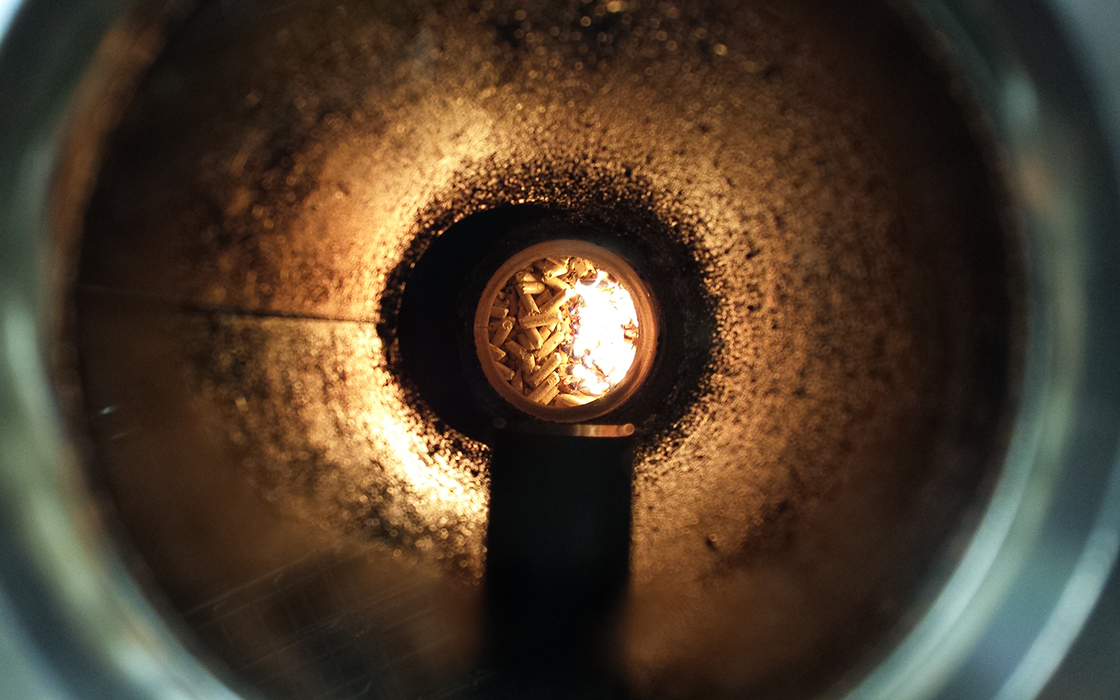Retrofit wood gas burner
A research team at FHNW University of Applied Sciences and Arts Northwestern Switzerland is developing a wood gas burner with which old oil-fired heating systems can easily be retrofitted.
Objectives
Development of a marketable wood gas burner with which old oil-fired heating systems can easily be retrofitted.
Background
Over the next few years in Switzerland, large numbers of old oil-fired heating systems must be replaced or upgraded. This is a good opportunity to replace fossil fuel crude oil with a sustainable combustible such as wood. However, converting an oil-fired heating system to a wood burner is often associated with a number of difficulties: Converting the oil tank to a wood pellet store is expensive, the chimney is often not suitable due to legal regulations and ash deposits in the oil-fired boiler can be problematic.
Result
The innovative wood gas burner is designed to use pellets to produce thermal energy for semi-detached houses and apartment buildings in the energy spectrum of 5 to 50 kilowatts. The research team is further developing a prototype made by "Pyro-Man Oy" – a spin-off from University of Eastern Finland. In the case of wood gas burners, a gas is firstly produced from the wood pellets; the second stage involves this gas being oxidised. It is possible to significantly reduce the amount of emissions this way. "As a general rule, the disadvantage of conventional wood-fired heating systems is the relatively high amount of dust emissions", says Josef Wüest. The plan is for oil-fired heating systems to be converted into CO2-neutral wood-pellet-fired heating systems using this new burner with little effort in the future, without significantly increasing the exhaust gas emissions in the process.
Project information
Implementation partner | |
Implementation | |
Duration | six years |
Funding | Swiss Federal Office of Energy SFOE, Federal Office for the Environment FOEN, Swiss Climate Foundation, Commission for Technology and Innovation CTI and Energie 360 |
Project team | Dr. Josef Wüest and Marc Keusch |

